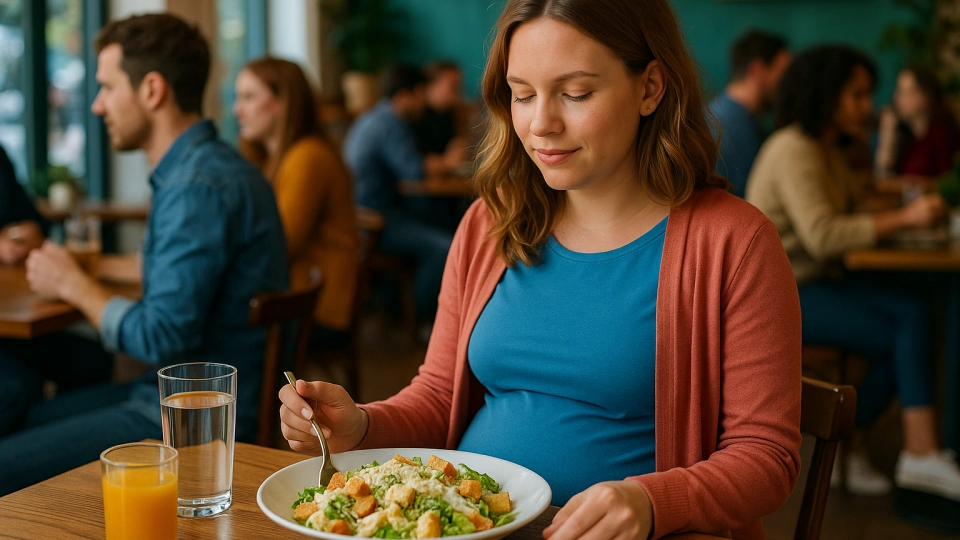What does eating properly during pregnancy really mean, and what factors need to be taken into account?
1. THE IMPACT OF DIET ON THE MOTHER'S HEALTH AND THE BABY'S DEVELOPMENT
Eating during pregnancy affects the proper development of the fetus. The baby depends entirely on the nutrients, vitamins, and minerals the mother consumes. A pregnant woman's nutrition must cover not only her own energy needs, but also the growth and building of the baby's body.
An inappropriate or unbalanced diet during pregnancy can lead to problems such as lack of energy, anemia, or a weakened immune system in the mother. The baby may be at risk of slowed growth, lower birth weight, or an increased risk of metabolic disorders.
With the right meal plan and a varied, balanced diet , the expectant mother supports not only her own health but also her baby's.
2. THE BASIC PILLARS OF A HEALTHY PREGNANCY DIET
Your pregnancy diet should be varied, balanced, and rich in essential macronutrients and micronutrients. An optimal ratio of carbohydrates, fats, and proteins in your meals will ensure sufficient energy and stable blood sugar levels, which helps reduce common fatigue in pregnancy.
Vitamins and minerals are important too. Pay special attention to regular intake of folic acid, iron, calcium, vitamins C, D, E, and the B-complex. These are essential for organ development, bone growth, the immune system, and the nervous system.
Hydration is also crucial during pregnancy. Adequate fluid intake supports metabolic processes and helps reduce lightheadedness and fatigue. Plain water is ideal; you can add teas as well. If plain water doesn't appeal to you, try adding cucumber, raspberries, strawberries, or mint and lemon. Avoid alcohol.
3. KEY NUTRIENTS IN PREGNANCY
- Folic acid plays a crucial role in proper neural tube development in the fetus. Good sources include leafy greens (spinach, lettuces), legumes, and whole-grain products.
- Iron is important for the formation of red blood cells and oxygen transport. Iron deficiency can cause anemia. You can find iron in red meat, plant sources (lentils, beans), and cereals.
- Calcium and vitamin D are essential for the development of your baby's bones and teeth. We recommend dairy products, cheeses, or nuts, as well as safe exposure to sunlight or, if necessary, dietary supplements.
- Omega-3 polyunsaturated fatty acids support brain and visual development in your baby, so fish (salmon, sardines) are beneficial, or a supplement with fish oil or algae-based products.
4. EATING BY TRIMESTER - HOW YOUR DIET CHANGES
The first trimester is often associated with nausea, so lighter meals, small portions, fruit, whole-grain crackers, yogurt, or nuts are suitable. Eating small portions throughout the day helps prevent morning sickness.
The second trimester is characterized by greater appetite, weight gain, and fetal growth. Increase your intake of quality protein from lean meats, and regularly include dairy products and fish.
In the third trimester, mothers need more energy, so a regular eating routine is important. Try to eat regular smaller portions with a higher fiber content - fruit, vegetables, nuts.
Toward the end of the third trimester, before birth, it is useful to include foods that give you energy without burdening digestion - for example, whole-grain products, light soups, smoothies, and properly prepared vegetables.
Try to eat a varied and balanced diet. We wish you a comfortable pregnancy full of health and vitality!

